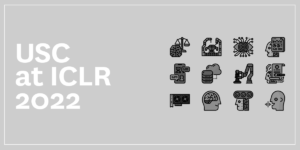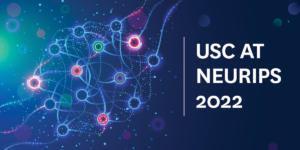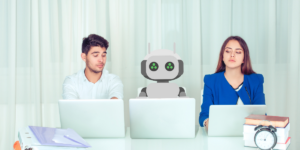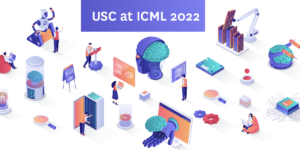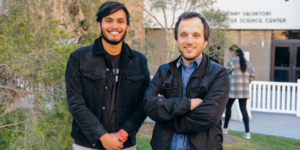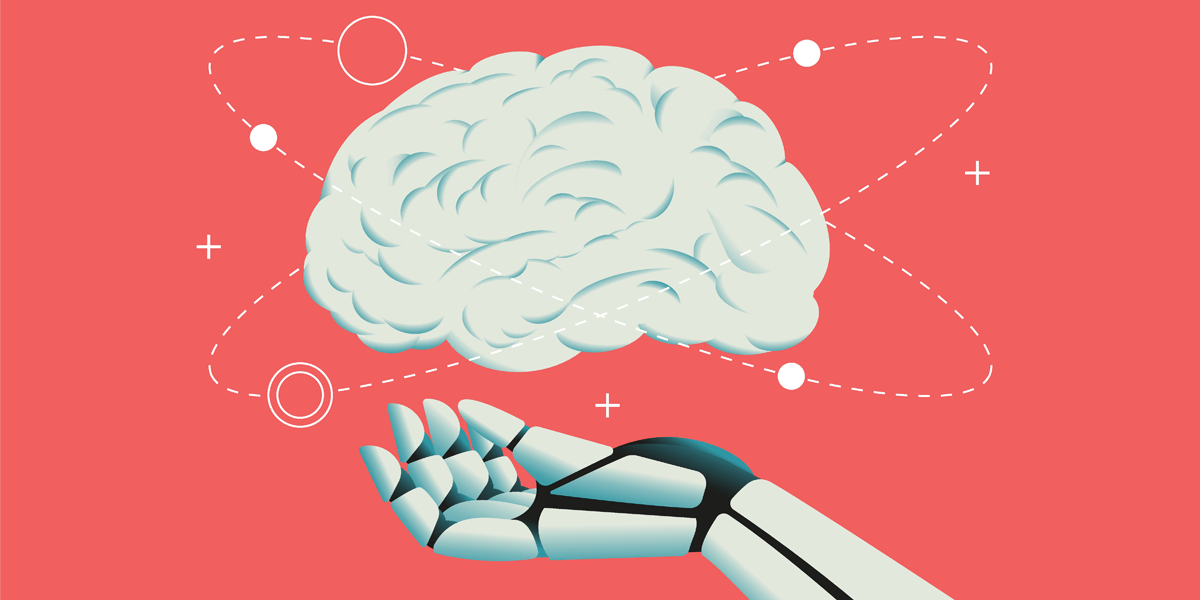
A new study led by USC researchers finds that robots can teach other robots how to learn by sharing knowledge. Photo/iStock.
You’re a poker wizard. A friend knows all about French cuisine. Another friend is a Mozart expert.
The three of you get together and share knowledge about your respective expertise. Each of you leaves learning something from the other two.
People learn a lot by sharing and exchanging information. Can computers do the same with other computers—can robots, in effect, teach other robots how to learn by sharing knowledge?
A team of researchers led by computer science Professor Laurent Itti and one of his Ph.D. students, Yunhao Ge, address this question in a paper published in May 2023 in the journal Transactions on Machine Learning Research.
They come up with a resounding answer:
Yes.
Their paper, Lightweight Learner for Shared Knowledge Lifelong Learning, describes a new approach to the growing area of machine learning (ML) research known as Lifelong Learning (LL), in which AI agents continually learn as they encounter new tasks while maintaining knowledge of previous tasks.
“It’s like each robot is teaching a class on its specialty, and all the other robots are attentive students.” Yunhao Ge.
Itti and Ge describe in the paper a tool they created, SKILL (for Shared Knowledge Lifelong Learning), in which AIs learn 102 distinct tasks – for example, categorizing tens of thousands of images of cars by model (Ferrari, Jeep, Cadillac) or flowers by species or chest X-rays by diseases.
The AIs then shared their knowledge over a decentralized communication network and eventually mastered knowledge of all 102 tasks.
“It’s like each robot is teaching a class on its specialty, and all the other robots are attentive students,” said Ge. “They’re sharing knowledge through a digital network that connects them all, sort of like their own private internet.”
Itti and Ge called their work a new direction in LL research.
Most current LL research, they explained, involves a single AI agent that learns tasks sequentially – a process that is inherently slow.
Their SKILL tool involves a set of algorithms that make the process go much faster, they said, because the agents learn at the same time in parallel. Their research showed if 102 agents each learn one task and then share, the amount of time needed is reduced by a factor of 101.5 after accounting for the necessary communications and knowledge consolidation among agents.
“Just like people, we’re trying to create AI agents that can keep learning after they discover new things.” Laurent Itti.
“Traditionally,” Itti explained, “you first collect all the data you want your AI to learn, then you train the AI to learn it. But just like people, we’re trying to create AI agents that can keep learning after they discover new things.”
Scaling up
Itti believes SKILL, the result of research funded, in part, by the Defense Advanced Research Project Agency (DARPA), is a promising starting point for advances in the field of LL.
No prior research has involved so many natural tasks, Itti and Ge said. And this is just the start.
“We believe this research, in the future, can be scaled up to thousands or millions of tasks,” Itti said.
When that happens – in just a few years, Itti estimated – LL could have the ability to transform various facets of our lives and bring humans closer to achieving a “truly connected, intelligent, and efficient global community.”
For example, in the medical field, different AI systems could specialize in learning about different illnesses, treatments, patient care techniques, and recent research, Itti said.
“We believe this research, in the future, can be scaled up to thousands or millions of tasks.” Laurent Itti.
After consolidating their knowledge, Itti and Ge explained, these AIs could serve as a comprehensive medical assistant, providing doctors with the latest, most accurate information across all areas of medicine.
Or imagine every smartphone user is a local tour guide in the city he or she is visiting. Each user takes photos and provides details about significant landmarks, stores, products, and local cuisine.
Once this data is shared across a network, every user would have an advanced digital tour guide in his or her pocket.
“In essence,” Ge said, “any profession requiring vast, diverse knowledge or dealing with complex systems could significantly benefit from this SKILL technology.”
Beyond recognition
The SKILL tool examined the ability of AIs to simply recognize what is in an image, Ge noted.
“Humans have the means of sharing information. We are now pushing that idea into the AI domain.” Laurent Itti.
“Recognition is a good starting point,” he said. “But future research will look at AIs being deployed to perform more sophisticated tasks.”
Itti and Ge said the concept of crowdsourcing – for example, online reviews of restaurants – is comparable to the idea described in their paper.
“In crowdsourcing,” Itti said, “many people tackle a piece of a problem and when the knowledge is shared, you have a solution. Now we can do the same thing with AI agents.”
“What if you, as a single person, had to relearn all of human knowledge?” Itti added. “That would be an insurmountable task. Humans have the means of sharing information. We are now pushing that idea into the AI domain.”
Published on July 18th, 2023
Last updated on July 19th, 2023




